Risk assessments for contaminated sites in Middlesbrough
If you’re looking to develop or buy land in Middlesbrough, one of the most important factors to consider is the site’s environmental condition. With its industrial history, polluted land in Middlesbrough is a common issue and one that developers, investors, and landowners need to take seriously.
This article explains what contaminated land is and why it’s a concern, before looking at how Middlesbrough Council deals with it and what you should do if you want to develop potentially affected land.

Contaminated Land Defined
Contaminated land refers to any site where hazardous waste like chemicals, heavy metals, oils, gases or hazardous waste, are present in quantities that pose a risk to human health or the environment. Contamination might be in the soil, water, or air, and can arise from historical land use, leaks, spills, or poor waste disposal practices.

Legal definition
The legal definition is set out under Part IIA of the Environmental Protection Act 1990. This legislation mandates that local authorities, including Middlesbrough Council, must identify and manage land where contamination presents an “unacceptable risk.”
The Environment Agency supports this process with national guidance – particularly the Land Contamination Risk Management (LCRM) framework, which outlines how risks should be assessed and addressed.
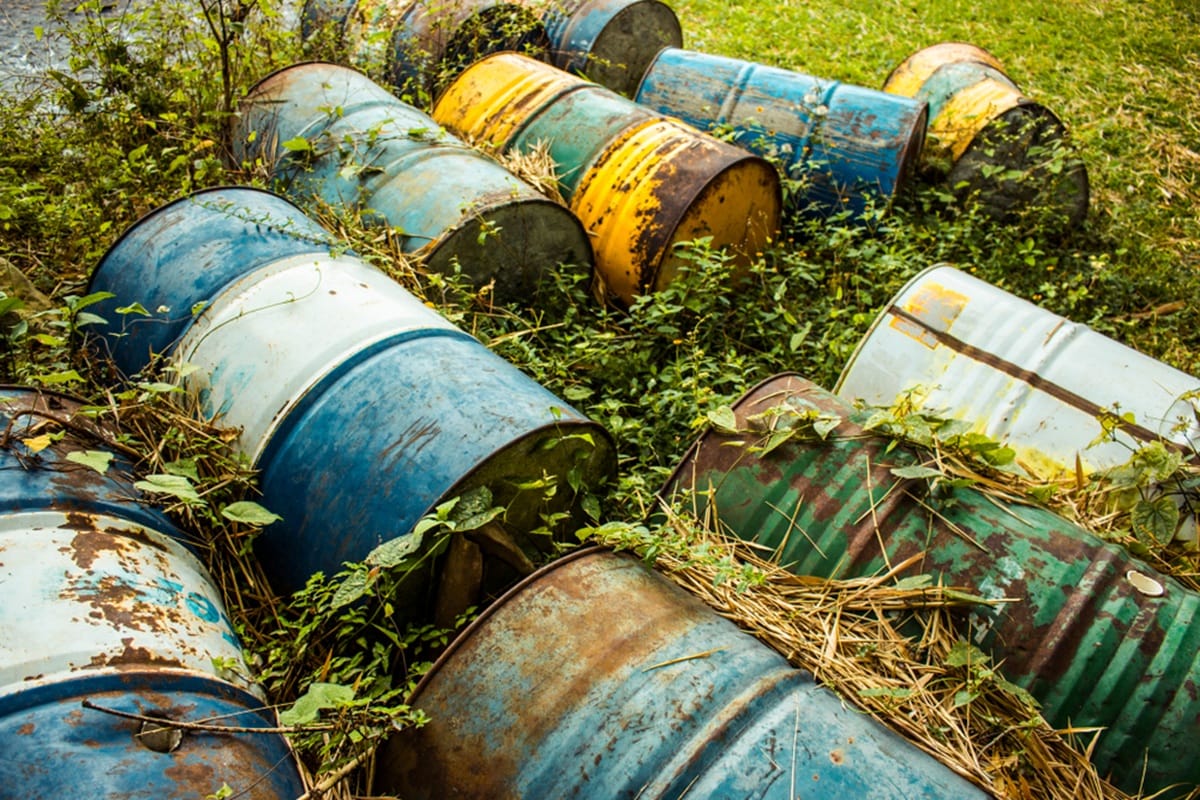
Why Contaminated Land Is a Concern
Contaminated land isn’t just a technical problem; it can have serious practical consequences:
- Human health risks to residents, construction workers, and future site users
- Pollution of watercourses and ecosystems from hazardous waste
- Damage to buildings from corrosive or gas-emitting substances
- Planning delays and legal obligations for developers
- Reduced land value or complications in securing finance or insurance
Identifying and dealing with contamination and hazardous waste early on is key to avoiding costly surprises further down the line.
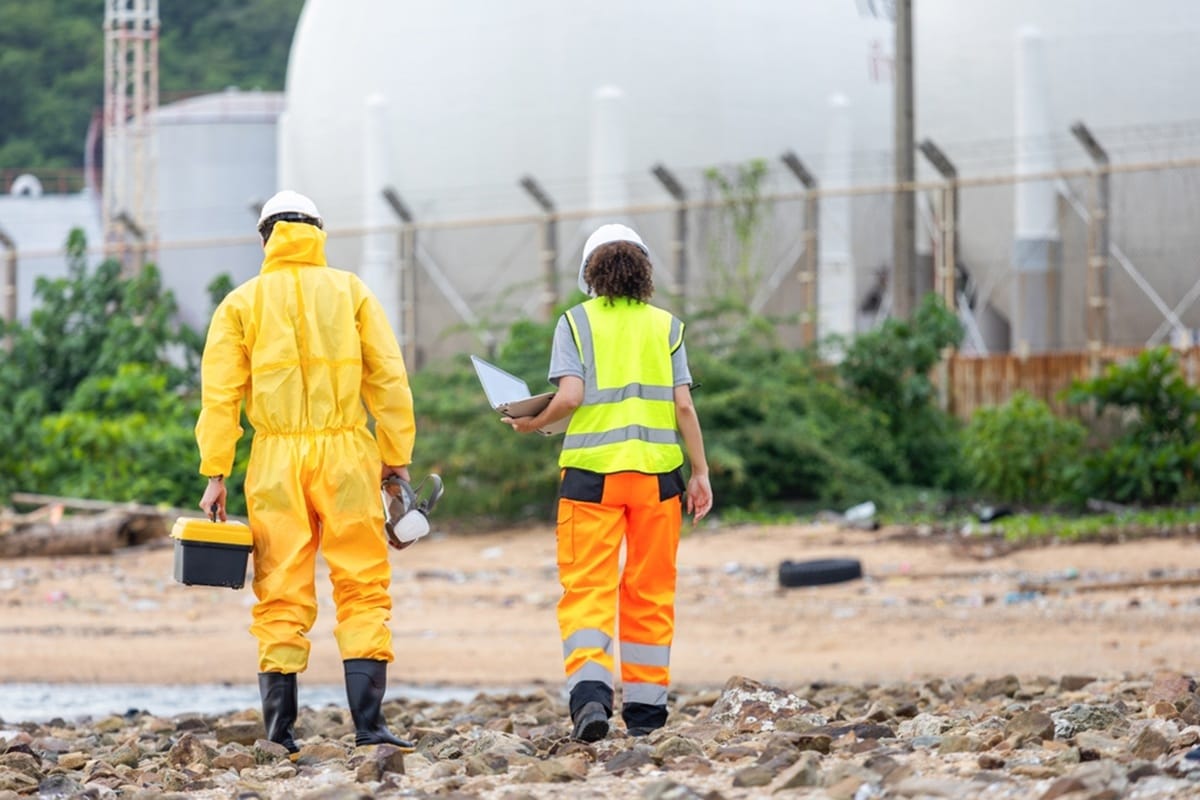
Middlesbrough’s Industrial Legacy: What It Left Behind
Middlesbrough has a long industrial history, especially in iron and steel, chemical manufacturing, coal gas production, engineering, and shipbuilding. While these activities drove economic growth, they also left behind a range of legacy contaminants and hazardous waste on industrial sites, such as:
- Hydrocarbons from fuel storage and heavy machinery
- Heavy metals like arsenic, lead, and mercury from steelworks and foundries
- Solvents and acids from chemical processing plants
- Tars, asbestos, and cyanide residues from old gasworks
As these industries wound down or relocated, many sites were left derelict or repurposed without formal land remediation – meaning the contamination remained.
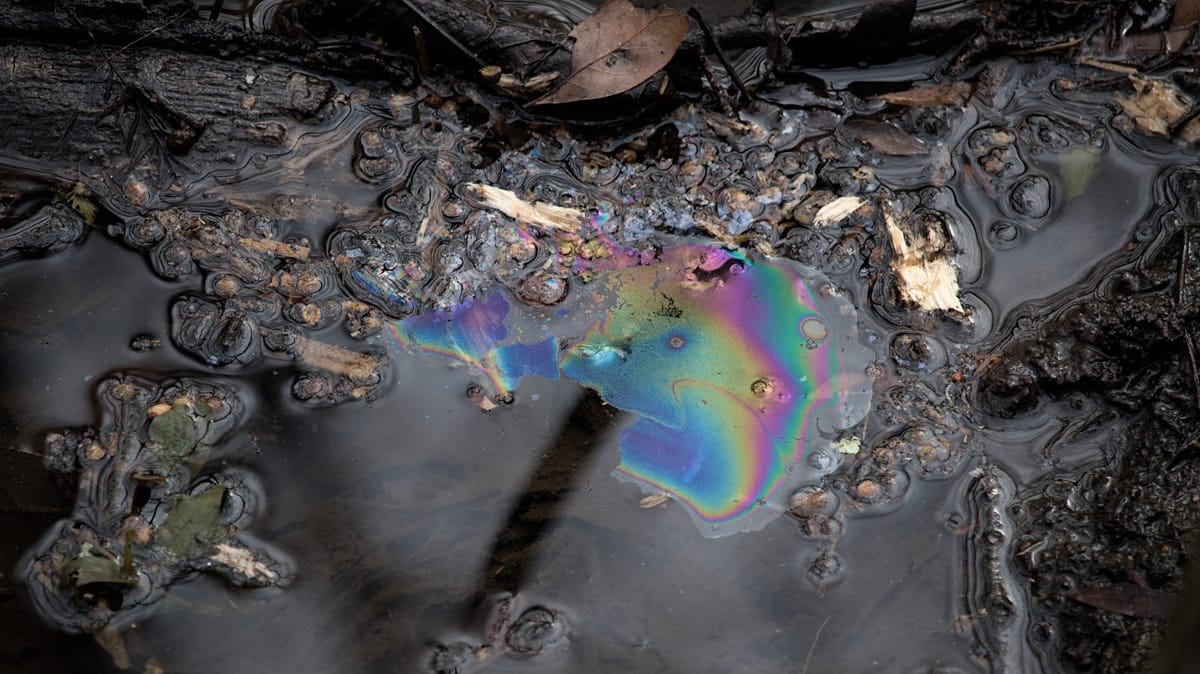
Middlesbrough Council’s Policy on Contaminated Sites
Middlesbrough Council, as the local planning authority, has a clear policy on contaminated land. The council’s core aims are to:
- Protect public health
- Safeguard the environment, especially controlled waters and green spaces
- Support sustainable development
- Encourage brownfield redevelopment via land remediation
The council inspects land across the borough and prioritises sites based on risk: it holds a public register of contaminated sites. It also plays a crucial role during the planning process, ensuring developers assess and manage contamination before projects can proceed.
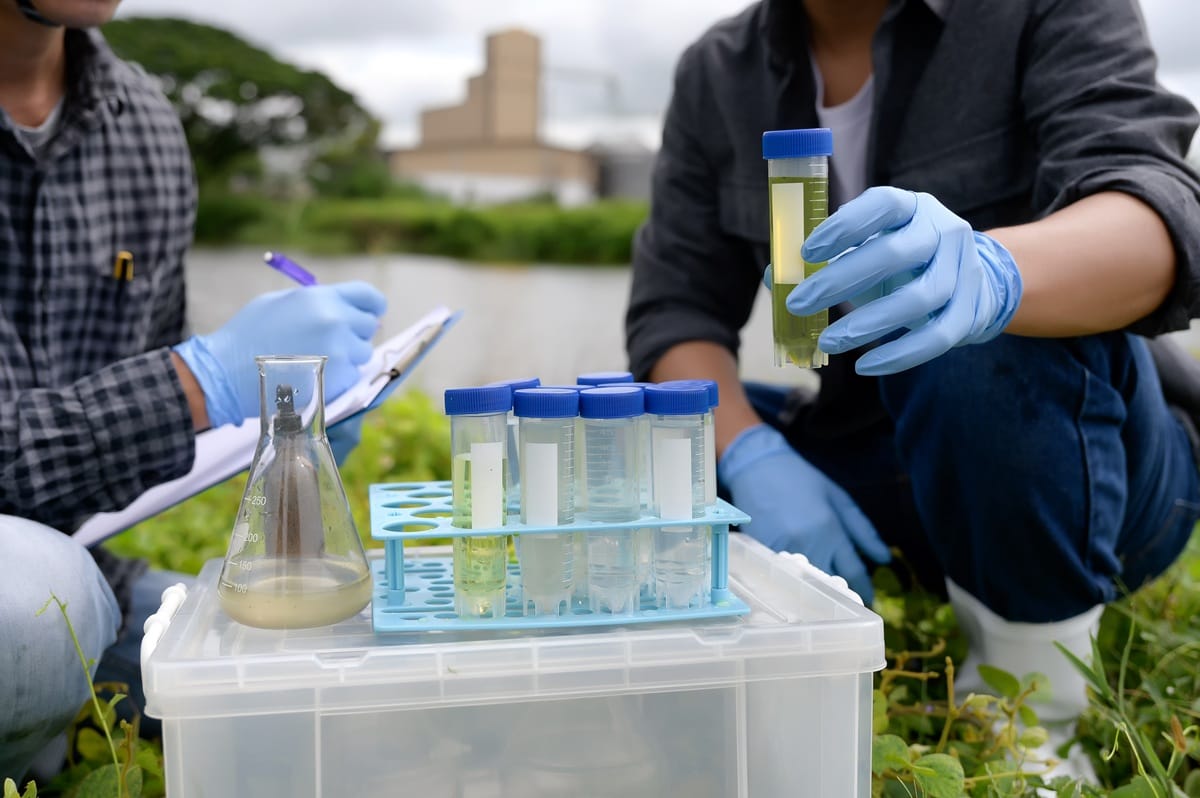
Contaminated Land and the Planning Process in Middlesbrough
If you’re submitting a planning application for a site that may be contaminated, Middlesbrough Council will likely request a phased investigation:
Phase 1 – Preliminary Risk Assessment (Desk Study)
This includes reviewing historic maps, previous land uses, environmental records, and carrying out a walkover survey. It determines whether contamination might exist and if further investigation is needed.
Phase 2 – Intrusive Site Investigation
If the desk study suggests potential risks, samples of soil, groundwater and ground gases are collected and analysed to identify hazardous waste. Geo-environmental consultants may dig trial pits to assess soil conditions or use a conceptual site model to help their calculations.
Remediation Strategy (if needed)
If harmful contamination is found, a detailed plan to clean up or manage the issue must be submitted and agreed with the local planning authority.
Validation / Verification
Once remediation work is complete, the site is tested again to ensure it is now suitable for its proposed use.

Encouraging Brownfield Development
With limited land and high demand for housing and infrastructure, Middlesbrough Council actively encourages the redevelopment of brownfield sites – previously developed land that may be affected by contamination.
By regenerating such sites, the council avoids putting pressure on greenfield land – open spaces and farmland that provide vital recreational and ecological value. High-profile regeneration areas in and around Middlehaven, South Bank, and former industrial corridors demonstrate the council’s commitment to land remediation and dealing with hazardous waste to bring contaminated land back into safe and productive use.
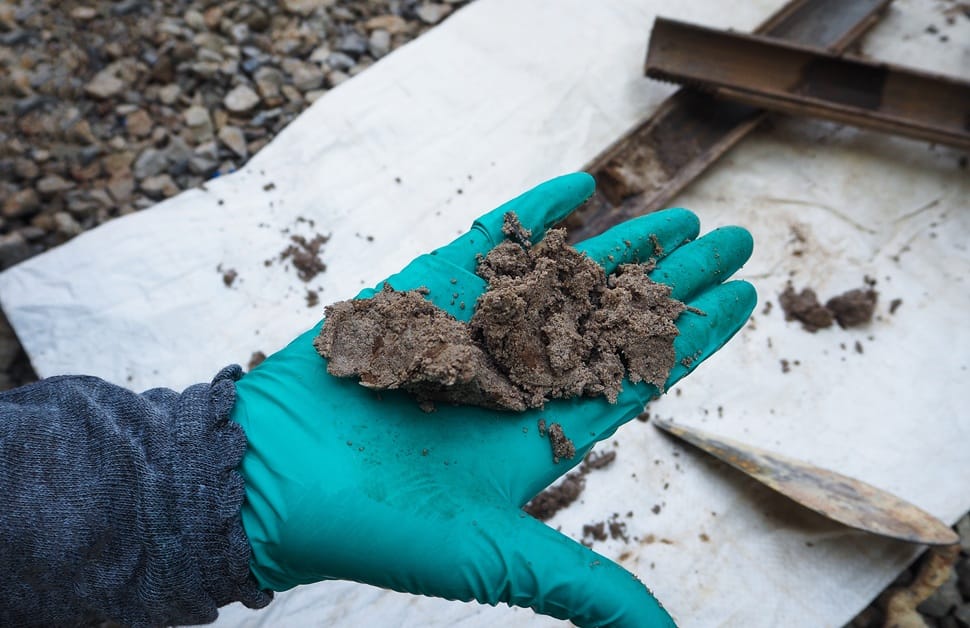
What To Do If You Want to Develop Contaminated Land in Middlesbrough
If you’re planning to develop or invest in a site with an industrial history, start by speaking to a contaminated land consultant. They’ll help you navigate the required process, carry out the appropriate assessments, and liaise with the council on your behalf.
Trying to skip this step often leads to delays or rejections at the planning stage, not to mention potential legal liabilities if future problems arise.
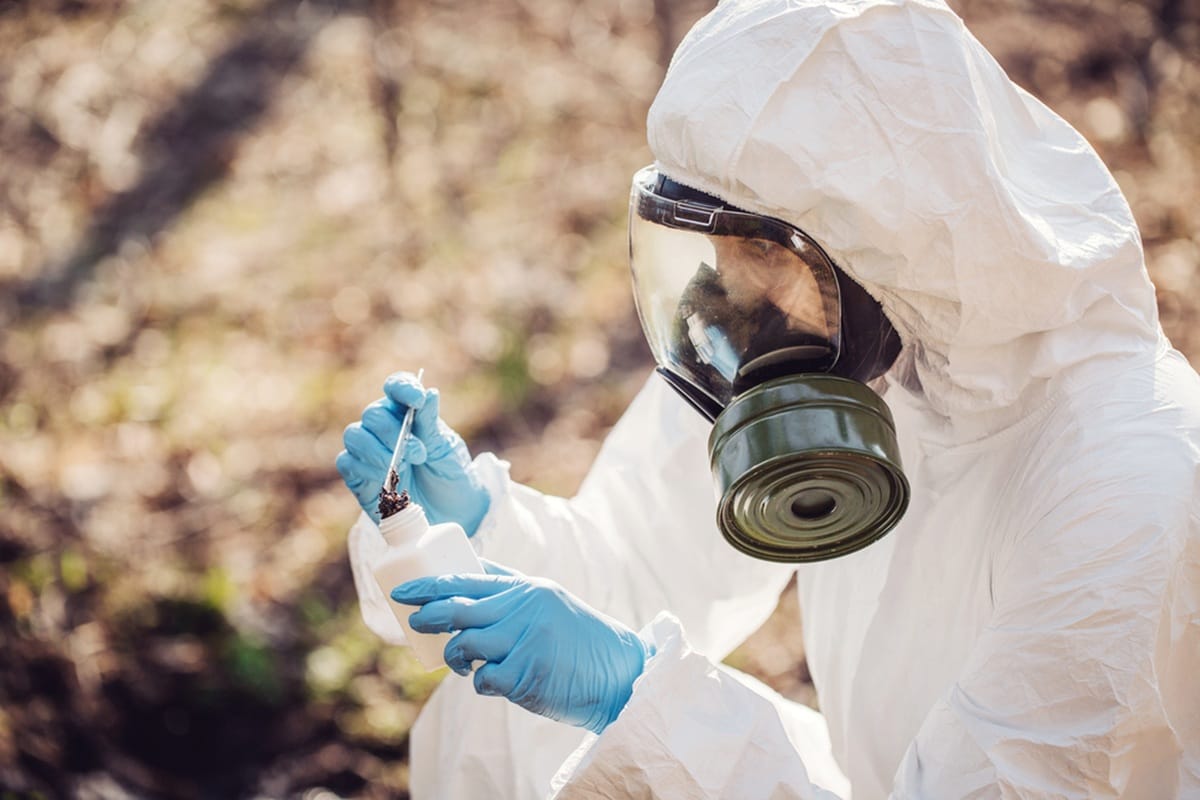
The Role of a Contaminated Land Consultant
A specialist consultant will help you:
- Carry out the Phase 1 contaminated land desk study
- Design and execute any required Phase 2 investigations
- Prepare a remediation strategy
- Supervise remediation work and produce a validation report
- Ensure compliance with the Environment Agency and regulatory authorities
Working with an expert gives you peace of mind that your site is safe, legal, and ready for development.
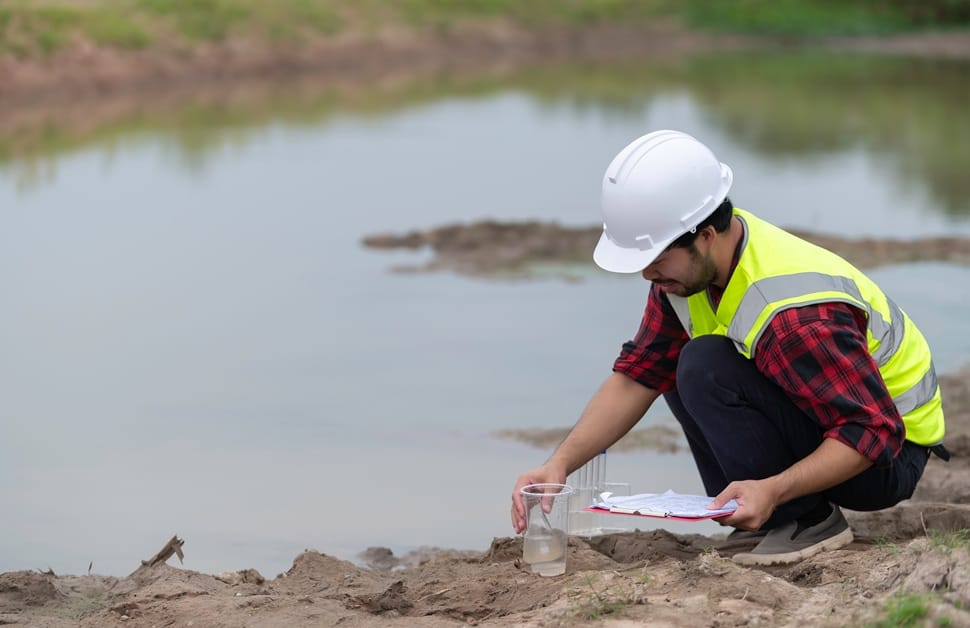
Opportunities from developing brownfield sites
With its strong industrial roots, contaminated land in Middlesbrough is a challenge, but also an opportunity. Regenerating brownfield sites helps the city grow sustainably while preserving green spaces.
Whether you’re developing housing, commercial property, or public infrastructure, understanding contamination risks and working with the right professionals will help keep your project on track and ensure you comply with requirements of the regulatory authorities.
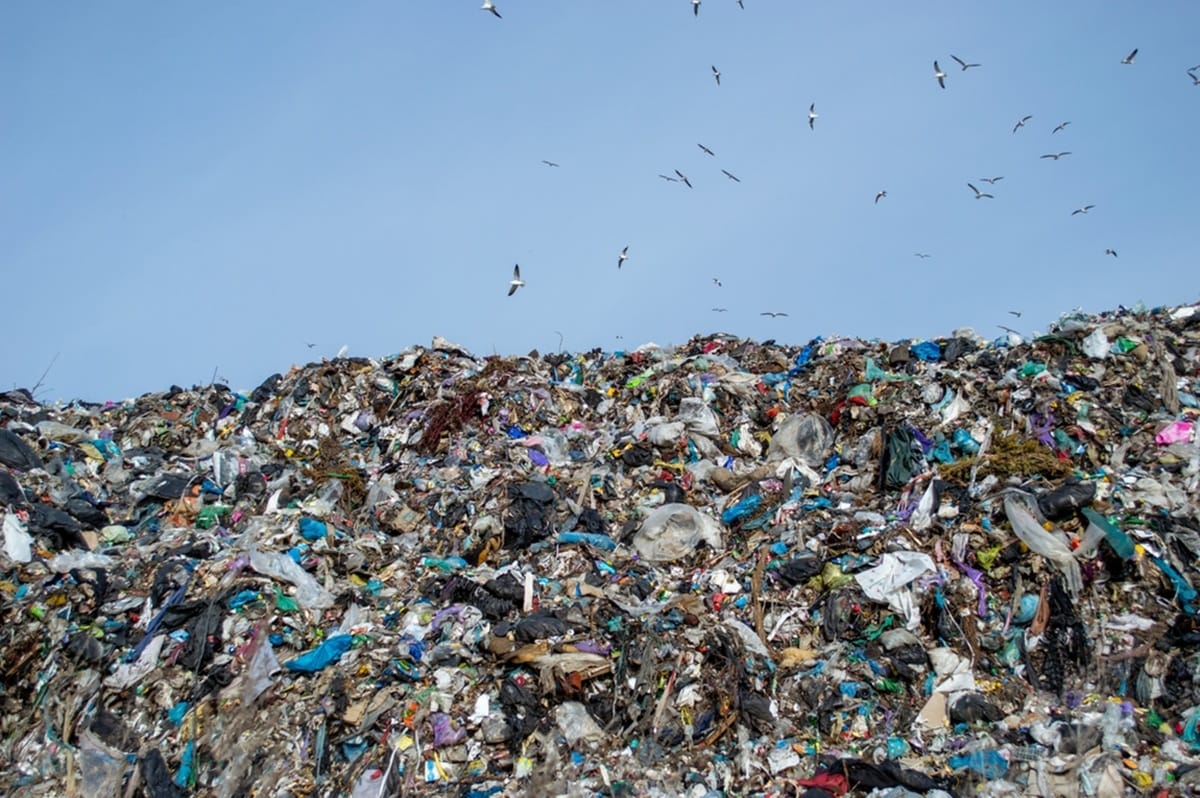
Move your plans forward
Looking to assess or redevelop a contaminated site in Middlesbrough? Our contaminated land consultants carry out surveys across the UK. They can provide all the contamination reports you will need, from preliminary risk assessments to remediation and validation.
For a free quote, complete our contact form or get in touch by email or telephone. If you are happy with our quote, we can arrange an appointment for a site visit.